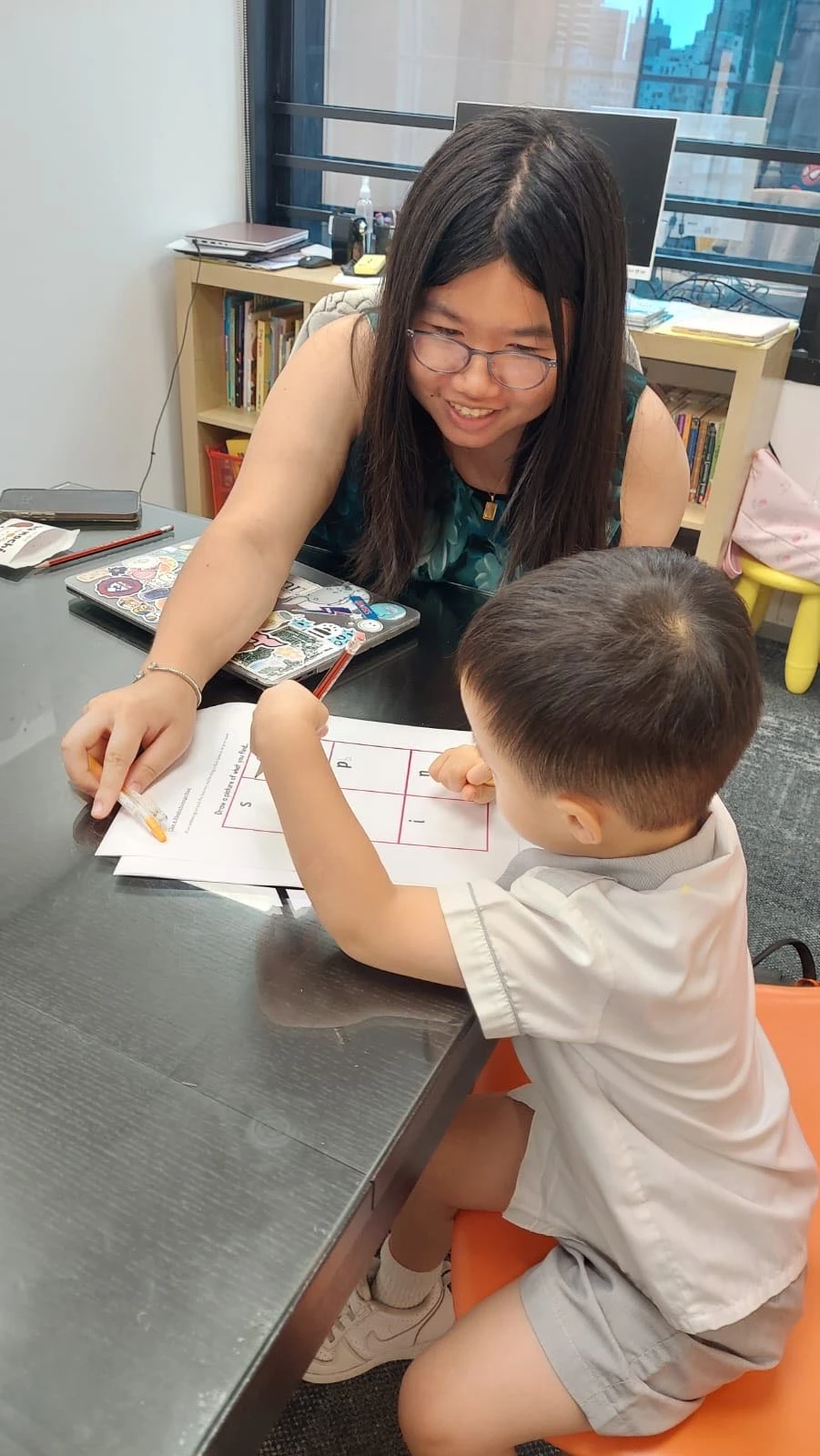Blending East and West in The OPEN Classroom
By: Xiyuan Lin

“Help me!” “I lost my cane!” “Miss Dora, I’m scared!”
A cacophony of screams echoed in the dark. It was my class field trip to the Dialogue in the Dark exhibit, an immersive tour in which we got to experience complete darkness while being led by a blind tour guide. Along with my boss and six 7-to-9-year-old students, we used canes to navigate the dark, rode a ferry, went to a café, and played soccer.
I had been working on the class plans for this course before starting my internship at the OPEN Classroom in Hong Kong. In Huntsman Hall, I outlined worksheets and designed slideshows, curious about how minorities like visually impaired people are viewed in Hong Kong. However, I couldn’t help but wonder if I—a college student who grew up in Mainland China and moved to the U.S. when she was 12—was qualified to teach students about what challenges visually impaired people faced in Hong Kong and Hong Kong’s resources to support this community that I was ignorant about. The fact that I couldn’t calm down my students during the field trip fueled this anxiety.
However, as I tutored students on vocabulary, grammar, and reading while seeing them struggle, I saw pieces of my younger self. Since English was my second language, I understood the difficulties and was able to empathize with the students who were still on their way. I realized that my educational background in Chinese public schools and American private schools allowed me to take the best of both worlds and integrate them into my lessons. What I needed to do as a summer teacher was to hone their English skills and build their interest in the language; and that’s what I strived to do in each class.
For example, in my Dialogue in the Dark class, students learned about the challenges visually impaired people face, the resources available, famous figures who were visually impaired, and the importance of empathy toward the disabled community. They read passages, underlined vocabulary that they didn’t know, and corrected their spelling mistakes by writing the proper spelling out 3 times—just as I did when I was first learning English. For a final project, they each designed and presented devices that would help visually impaired people in their daily lives. This was what my classes were often like in America: creative with an emphasis on individuality. Seeing each student present their innovations, from a do-it-all robot dog to a chair that transports its owner anywhere within seconds, my heart felt full.
As I continued my internship, my imposter syndrome lessened with every class I taught. As an intern, I had the opportunity to design 2 modules: Shaping Societies and Path to Humanity. Being a Political Science and Gender, Sexuality, and Women’s Studies double major, I weaved my passion for advocacy, law, and social justice into my internship, honing my students’ English skills while pushing them to think critically about topics ranging from refugees’ rights to potential regulations on AI. I even got to revisit one of my favorite reads in high school—George Orwell’s 1984—and discuss the text with one of my students in a literary analysis course. Through class activities like mock trial, presentations, and debates, I saw my students step out of their shells and practice their English. Even though my internship is ending soon, I will cherish every moment, whether they’re filled with screams or pride.
The Global Research and Internship Program (GRIP) provides outstanding undergraduate and graduate students the opportunity to intern or conduct research abroad for 8 to 12 weeks over the summer. Participants gain career-enhancing experience and global exposure that is essential in a global workforce.